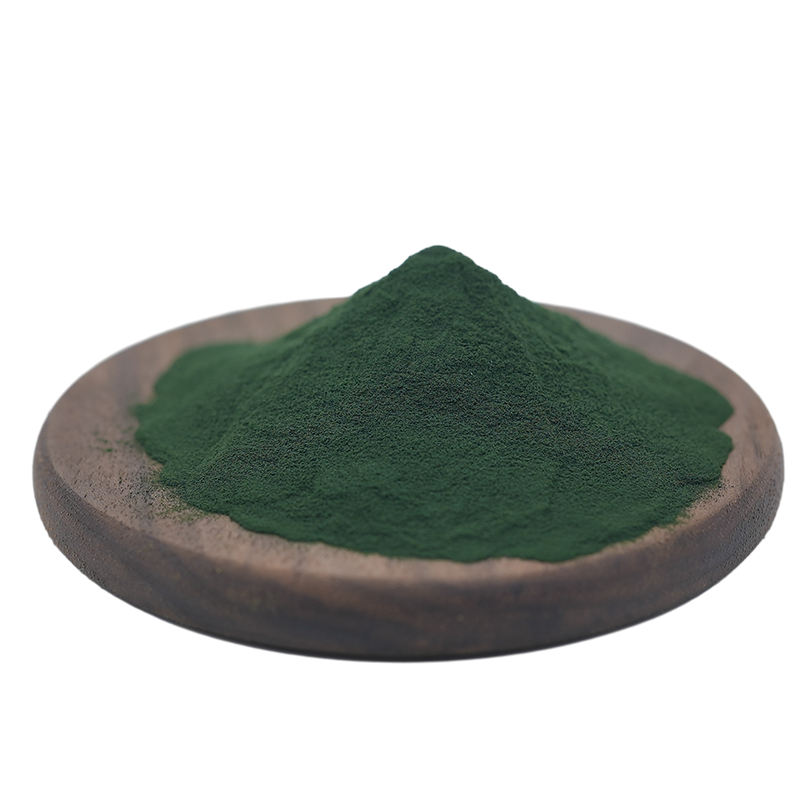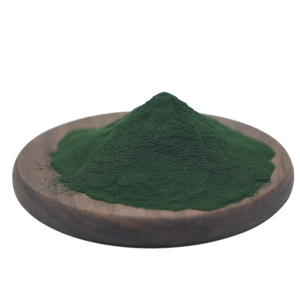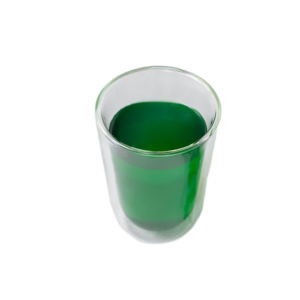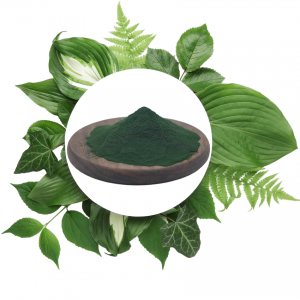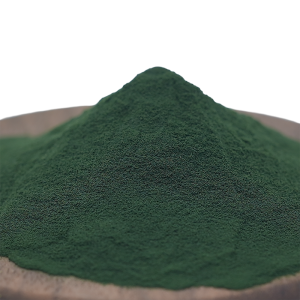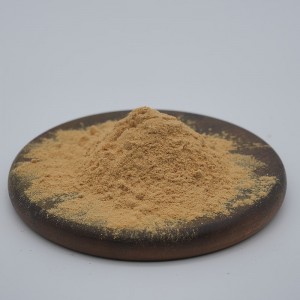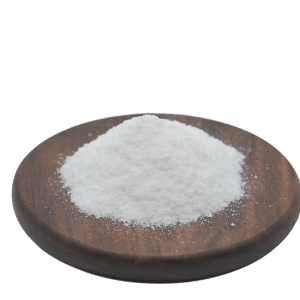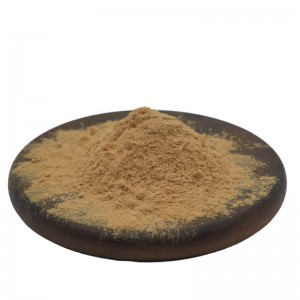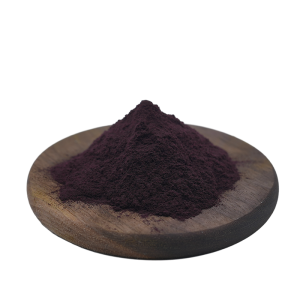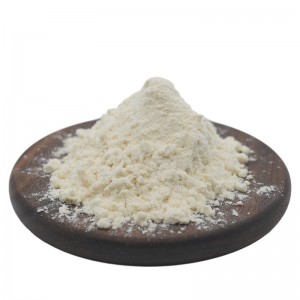
Products
Chlorophyllin
Product Description
Chlorophyllin is a natural pigment that can be found in various green leafy vegetables such as spinach, kale, and parsley. It is a water-soluble derivative of chlorophyll and has been used as a food additive and natural colorant. Chlorophyllin has also been studied for its potential health benefits, such as antioxidant and anti-inflammatory properties, but further research is needed to confirm these effects. Chlorophyllin shares many similarities with chlorophyll in terms of its chemical structure and properties.
One of the main uses of chlorophyllin is as a food additive and natural colorant. It is commonly used in the food industry to enhance the appearance of products by giving them a vibrant green hue. Chlorophyllin is also considered safe for consumption and does not have any known adverse effects on human health.
In addition to its role as a colorant, chlorophyllin has gained attention for its potential health benefits. It has been studied for its antioxidant properties, which means it can help protect cells from damage caused by harmful molecules called free radicals. Antioxidants are believed to play a crucial role in reducing the risk of chronic diseases such as heart disease and cancer.
Furthermore, some studies suggest that chlorophyllin may have anti-inflammatory effects. Inflammation is a natural process that occurs in response to injury or infection, but chronic inflammation can contribute to the development of various diseases. By reducing inflammation, chlorophyllin may help support overall health and well-being.
Another area of interest is the potential detoxifying properties of chlorophyllin. It has been studied for its ability to bind to certain toxins and carcinogens, preventing their absorption in the body. This has led to investigations into its potential use as a dietary supplement to aid in detoxification processes.
Moreover, chlorophyllin has been explored for its antimicrobial properties. Some research suggests that it may help inhibit the growth of certain bacteria and fungi, providing a natural alternative to conventional antimicrobial agents. However, more studies are needed to fully understand the extent of its antimicrobial effects and its potential applications in medicine.
While chlorophyllin shows promise in various areas, it is important to note that further research is necessary to confirm its health benefits. Many studies conducted so far have been preliminary or performed on animals or cells in a laboratory setting. Therefore, more extensive human clinical trials are required to determine the effectiveness and safety of chlorophyllin for specific medical conditions.
It's worth mentioning that although chlorophyllin is generally considered safe for consumption, some individuals may experience mild side effects such as diarrhea or green discoloration of the urine or stools when taking high doses. As with any dietary supplement, it is recommended to consult with a healthcare professional before starting any new regimen.
In conclusion, chlorophyllin is a natural pigment found in green leafy vegetables that has been used as a food additive and natural colorant. It has also been studied for its potential health benefits, including antioxidant, anti-inflammatory, detoxifying, and antimicrobial properties. However, more research is needed to fully understand and validate these effects.
Certificate of Analysis




